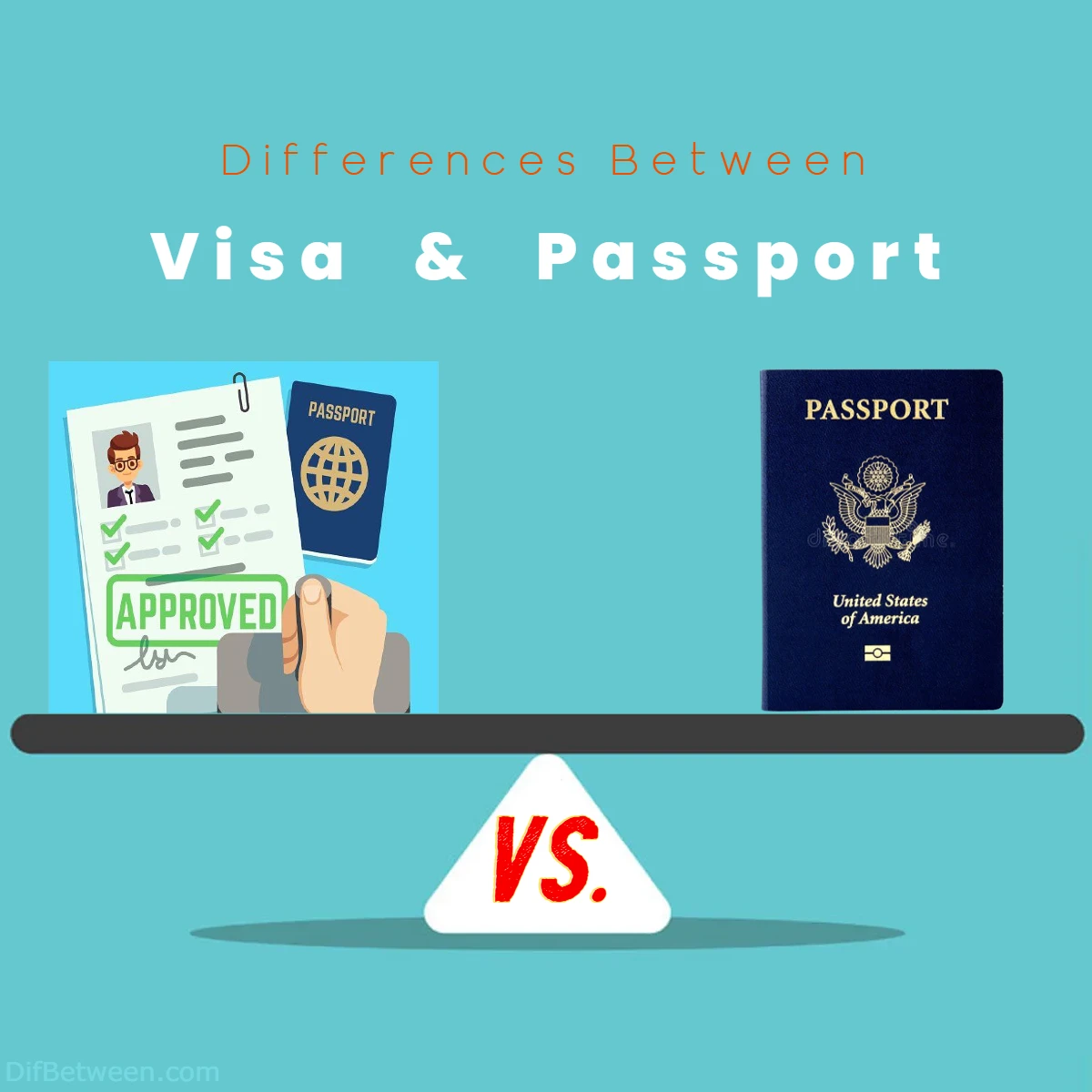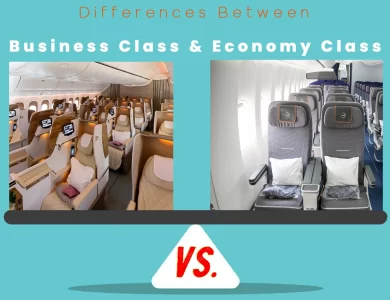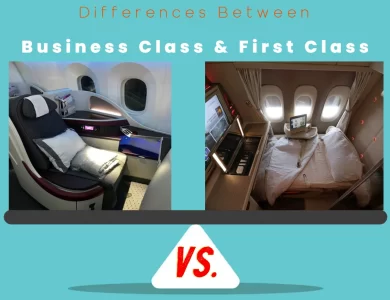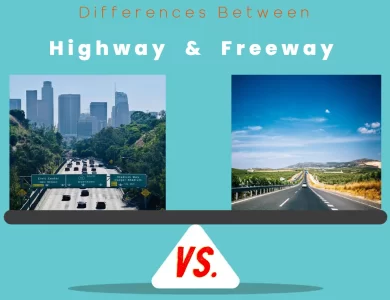
| Aspect | Passport | Visa |
|---|---|---|
| Definition | Universal proof of identity and nationality | Country-specific authorization for entry |
| Purpose | Identity verification, travel access | Entry permission for a specific purpose |
| Issuer | Home country’s government | Destination country’s government (usually) |
| Validity | Usually 5 to 10 years | Varies by type and country |
| Renewal | Necessary before expiration | If applicable, before or during travel |
| Application Process | Through your country’s passport office | Embassy/consulate or online application |
| Processing Time | Varies by country, expedited services available | Varies by country and visa type |
| Application and Renewal Fees | Yes | Yes, application fees |
| Entry Requirement | Required for international travel | Required for entry to specific countries |
| Travel Range | Global access | Limited to the country granting the visa |
| Duration of Stay | N/A | Varies by visa type and purpose |
| Travel Flexibility | No impact on entry requirements | Dictates your travel purpose |
| Multiple Entries | N/A | Single, multiple, or as specified |
| Extension Possibility | N/A | If applicable, for a longer stay |
| Entry Conditions | Border crossing and customs verification | Adherence to visa conditions |
| Required for Travel | Yes, always | Only if visiting a country requiring one |
| Record of Travel | Stamps, immigration history | Stamps, records entry and purpose |
Imagine this: you’re standing at the cusp of an exciting escapade, about to step onto foreign soil. But wait, there’s a crucial pause. Your passport, that humble booklet tucked away in your bag, is more than just a collection of pages. It’s your personal introduction to the globe, a window into your identity and nationality. As you cross the border, this very document is your entry ticket, inviting you to explore cultures, landscapes, and experiences that lie beyond. But here’s the twist: a visa, a unique stamp or mark, is your invitation to a specific country’s playground. It grants you access, outlining the purpose of your visit, be it leisure, work, study, or more. The dance between passports and visas shapes your voyage, and understanding their dynamics is key to a successful journey.
Differences Between Passport and Visa
The main differences between a passport and a visa lie in their purposes and functions for international travel. A passport serves as a universal proof of identity and nationality, issued by one’s home country, allowing individuals to cross international borders. On the other hand, a visa is a country-specific authorization granted by the destination country, permitting entry for a particular purpose, such as tourism, work, or study. While a passport is essential for all international travel, a visa is necessary only when visiting countries that require it. Thus, passports establish identity, while visas grant entry permissions based on specific travel intentions.
Understanding Passports: Your Identity and Gateway
Passport Basics: A passport is more than just a travel accessory; it’s a universally recognized proof of identity and nationality. This compact booklet, usually issued by your home country’s government, contains vital information such as your photo, full name, date of birth, nationality, and a unique passport number. It’s your personal identification on the global stage.
Key Purpose: The primary role of a passport is to verify your identity and citizenship. It’s your ticket to international recognition and serves as your gateway to various countries. With a passport in hand, you have the right to request entry into foreign territories and to return to your home country. Think of it as your membership card to the global community.
Validity and Renewal: Passports aren’t forever. They come with an expiration date, usually ranging from 5 to 10 years, depending on your country of issuance. It’s crucial to keep track of your passport’s validity, as many countries require it to be valid for at least six months beyond your intended return date. Renewing your passport before it expires ensures uninterrupted travel access.
| Aspect | Passport | Visa |
|---|---|---|
| Purpose | Proof of identity and nationality | Authorization for entry into a specific country |
| Issuer | Home country’s government | Destination country’s government (in most cases) |
| Validity | Typically 5 to 10 years | Varied, depending on visa type and country |
| Application Process | Apply through your country’s passport office | Apply at an embassy/consulate or online |
| Processing Time | Varies by country, usually a few weeks | Varies by country and visa type |
| Cost | Application and renewal fees apply | Application fees and sometimes additional costs |
| Entry Requirement | Required for international travel | Required for entry to specific countries |
Decoding Visas: Country-Specific Permissions
Visa Basics: Unlike passports, visas are country-specific. A visa is an official endorsement, usually stamped or affixed to a page in your passport, granting you permission to enter, stay, or transit through a particular country for a specified period. This permission is not universal and varies based on the destination country’s regulations and your travel intentions.
Key Purpose: A visa serves as a gate pass to a specific country. While your passport confirms your identity, a visa ensures your eligibility to be in the country you’re visiting. Different visas cater to diverse purposes, such as tourism, business, work, study, or family visits. The type of visa you need depends on the nature and duration of your stay.
Types and Requirements: Visas come in a multitude of types, each tailored to specific travel intentions. Common categories include tourist visas, business visas, student visas, and work visas. Each type has unique eligibility criteria, documentation requirements, and application processes. It’s essential to research and choose the right visa type before applying.
| Visa Type | Purpose | Duration |
|---|---|---|
| Tourist Visa | Leisure travel | Typically short-term, up to 90 days |
| Business Visa | Attending meetings, conferences, or business activities | Short to medium-term |
| Student Visa | Pursuing education | Duration of the study program |
| Work Visa | Employment opportunities | Varies based on work contract |
| Transit Visa | Airport stopovers while en route to another destination | Short-term, specific purpose |
Application and Approval: Securing a visa involves a separate application process, often requiring you to submit documents such as a visa application form, passport-sized photos, travel itinerary, financial proof, and sometimes an invitation letter from a host in the destination country. The processing time and requirements can vary widely depending on the country and visa type.
Entry Conditions and Duration: Each visa comes with specific conditions regarding entry, stay, and activities allowed within the host country. It’s crucial to adhere to these conditions to avoid legal issues. Overstaying a visa’s duration or engaging in unauthorized activities could result in fines, deportation, or even a ban on future visits.
In the world of international travel, passports and visas play distinct yet interconnected roles. Let’s sum up the key differences and interdependencies between these two vital documents.
Passport’s Role: A passport is your universal proof of identity and citizenship. It doesn’t grant you entry to other countries on its own but serves as the primary document that enables you to apply for visas. Its validity is essential; most countries require your passport to be valid for a certain period beyond your intended departure.
Visa’s Role: A visa, on the other hand, is a country-specific authorization that allows you to enter, stay, or transit through a particular country. It’s typically affixed to a page in your passport. Without the appropriate visa, you may be denied entry to your desired destination. Visa requirements, types, and application procedures vary significantly from country to country.
The Application Process: While passports are obtained through your home country’s passport office, acquiring a visa involves interacting with the embassy or consulate of the country you plan to visit. Some countries allow you to apply online, streamlining the process. Researching visa requirements and applying well in advance of your travel date is crucial to ensure a smooth journey.
Interplay Between Passport and Visa: Your passport serves as the foundation for all international travel. When applying for a visa, you’ll often need to provide your passport details, as the visa will be linked to your passport. It’s vital to have a valid passport before pursuing a visa application, as most embassies and consulates require your passport information during the process.
Comparing Costs and Processing Times
Passport Costs and Processing: Obtaining a passport comes with costs. These fees cover various aspects, including application, processing, and sometimes expedited services. The price varies based on factors such as your age, whether it’s your first passport or a renewal, and the processing speed you choose. Expedited services can significantly reduce the processing time, but they often come with higher fees.
Visa Costs and Processing: Visa costs are another financial aspect to consider. Application fees for visas vary widely depending on the country, type of visa, and your nationality. Some countries offer different fee structures based on the intended length of stay or purpose of the visit. It’s important to factor in these costs when planning your trip.
Processing times for visas can range from a few days to several weeks or even months, depending on the destination country and the type of visa you’re applying for. Applying well in advance of your travel date is recommended to ensure you receive your visa in time for your journey.
Passport Entry Requirement: Your passport is your first point of contact when crossing international borders. Customs and immigration officials inspect it to verify your identity and nationality. Some countries also require your passport to have a certain number of blank pages for visa stamps. Your passport’s expiration date is crucial, as many countries demand it to be valid for a certain period beyond your intended departure date.
Visa Entry Requirement: When you have a visa, it signifies that the destination country has granted you permission to enter. Upon arrival, immigration officials might inspect your visa to ensure you’re adhering to the conditions of your visit. It’s essential to understand whether your visa allows single or multiple entries, as this affects how many times you can cross the border within the visa’s validity.
Exit Requirements: When leaving a country, your passport might be stamped to indicate your departure. In some cases, this is a routine procedure, while in others, it’s essential for immigration tracking. Always adhere to the exit requirements of the country you’re leaving, as failing to do so could lead to complications during future visits.
Handling Unplanned Circumstances: Renewals and Extensions
Passport Renewals: As passports have expiration dates, renewal becomes necessary to maintain your travel privileges. Renewal processes vary by country, but in general, you’ll need to provide your old passport, updated photos, and complete a renewal application. Renew your passport well before it expires to avoid travel disruptions.
Visa Extensions: Sometimes, your original travel plans might change, and you might wish to extend your stay in a foreign country. In such cases, you might be able to apply for a visa extension. The possibility and process for extensions depend on the country and the type of visa you hold. Always be aware of your visa’s expiration date and the procedures for extending your stay if needed.
Passports, Visas, and Your Journey
In the world of international travel, passports and visas act as gatekeepers to new experiences, cultures, and opportunities. Understanding their differences and intricacies is essential for seamless and enriching journeys. Remember:
- Passports: These are your identity documents, recognized globally. They provide the foundation for international travel and serve as a requirement for visa applications.
- Visas: Country-specific authorizations that allow you to enter, stay, or transit through a particular nation. Their type and requirements vary based on your travel intentions.
- Costs and Processing: Both passports and visas come with associated costs and processing times. Factor these into your travel budget and timeline.
- Entry and Exit Requirements: Your passport is your entry ticket, while a visa grants you the right to enter a specific country. Adhere to entry and exit requirements for smooth journeys.
- Renewals and Extensions: Renew your passport before it expires, and understand the possibility of visa extensions if your travel plans change.
FAQs
A passport serves as a universally recognized proof of your identity and nationality. It’s essential for international travel and verification at border crossings.
A visa is a country-specific authorization that allows entry into a particular nation for a specific purpose, such as tourism, work, or study. It’s usually stamped or affixed to a page in your passport.
Yes, a passport is a fundamental requirement for all international travel, while a visa is necessary only for specific countries that require it based on your nationality and travel purpose.
Generally, no. A passport is usually required to apply for a visa since the visa is linked to your identity and citizenship, which are verified through your passport.
Passport processing times vary by country and can be expedited for a fee. Visa processing times vary based on the country and visa type, ranging from a few days to several weeks.
It’s crucial to have both a valid passport and visa during your travels. An expired passport can lead to denied entry, and an expired visa can result in legal complications in the host country.
Some countries allow visa-free or visa-on-arrival entry for certain nationalities. However, these arrangements vary and are subject to change, so it’s essential to check beforehand.
Some countries offer the option to extend certain types of visas if your travel plans change. Research the specific visa regulations of the host country for extension possibilities.
Yes, it’s possible to have multiple visas from different countries in one passport, depending on your travel history and plans.
Yes, children, like adults, require passports for international travel. Visa requirements for children depend on the destination country’s regulations and the child’s nationality.
Passports with biometric data and secure features enhance identity verification, while visas regulate entry and ensure travelers meet specific criteria, contributing to border security.
Some countries allow visa applications from within their territory, but the rules vary. It’s often recommended to apply for visas from your home country or country of residence.
Read More:
Contents
- Differences Between Passport and Visa
- Understanding Passports: Your Identity and Gateway
- Decoding Visas: Country-Specific Permissions
- Navigating International Travel: Passport vs. Visa
- Comparing Costs and Processing Times
- Navigating Entry and Exit Requirements
- Handling Unplanned Circumstances: Renewals and Extensions
- Passports, Visas, and Your Journey
- FAQs






